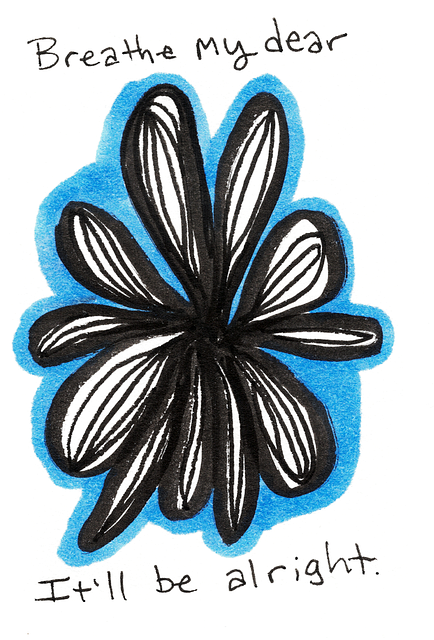Cultural competency is a key differentiator in effective healthcare delivery, especially for Broomfield Couples Communication Issues Therapy. By understanding and respecting diverse cultural backgrounds, therapists create safe spaces for couples to share personal experiences. This leads to improved therapy outcomes, risk management, and personalized mood management techniques. A multifaceted training approach focusing on historical context, implicit biases, tailored communication, and self-care equips healthcare providers with tools to address couples' communication issues compassionately. Interactive workshops, case studies, role-playing, pre/post assessments, debriefing sessions, and mind over matter principles all contribute to enhancing patient care in Broomfield Couples Communication Issues Therapy.
Cultural competency in healthcare is no longer a nicety, but an essential tool for improving patient outcomes, especially within diverse communities like Broomfield. This article delves into the significance of cultural competency training for healthcare providers, focusing on its impact on intimate partnerships through Broomfield Couples Communication Issues Therapy. We explore key components of effective training and strategies to implement and measure cultural competence in clinical practice, highlighting the profound benefits for both providers and patients.
- Understanding Cultural Competency in Healthcare: Why It Matters for Broomfield Couples Communication Issues Therapy
- Key Components of Effective Cultural Competency Training for Healthcare Providers
- Strategies for Implementing and Measuring Cultural Competency in Clinical Practice: A Focus on Broomfield Couples Communication Issues Therapy
Understanding Cultural Competency in Healthcare: Why It Matters for Broomfield Couples Communication Issues Therapy

Cultural competency is a critical aspect of healthcare that ensures providers can effectively communicate and address the unique needs of diverse patient populations, including those in Broomfield Couples Communication Issues Therapy settings. It involves understanding and appreciating cultural differences, values, beliefs, and practices to deliver more personalized and inclusive care. This is especially relevant for couples seeking therapy, where both partners may come from distinct cultural backgrounds, each bringing their own set of expectations and communication styles.
In the context of Broomfield Couples Communication Issues Therapy, culturally competent practitioners can foster better connections with their clients. They can employ empathy-building strategies to create a safe space, allowing individuals to openly discuss personal matters related to their culture, such as family dynamics, gender roles, or spiritual practices. This holistic approach not only enhances the therapy experience but also aids in accurate risk management planning for mental health professionals. Moreover, it enables practitioners to tailor mood management techniques, ensuring that interventions are culturally sensitive and more likely to be embraced by diverse couples.
Key Components of Effective Cultural Competency Training for Healthcare Providers

Effective cultural competency training for healthcare providers involves a multifaceted approach that goes beyond superficial understanding. It should encompass key components such as historical and cultural context, implicit biases, communication skills tailored to diverse populations, and self-care practices for providers. By delving into these areas, healthcare professionals can better navigate Broomfield Couples Communication Issues Therapy sessions, ensuring sensitivity and effectiveness in addressing various mental health concerns, including depression prevention.
The design of such training programs should prioritize interactive learning experiences, case studies reflecting real-world scenarios, and ongoing mentorship opportunities. Incorporating Mental Health Education Programs into the curriculum fosters a culture of open dialogue about diverse cultural perspectives, thereby enhancing patient care. Ultimately, this holistic approach equips healthcare providers with the tools necessary to address Broomfield Couples Communication Issues with compassion and proficiency, promoting overall well-being for both patients and practitioners.
Strategies for Implementing and Measuring Cultural Competency in Clinical Practice: A Focus on Broomfield Couples Communication Issues Therapy

Implementing cultural competency within clinical practice, such as Broomfield Couples Communication Issues Therapy, involves a multi-faceted approach to ensure effective and respectful care. Trainers can incorporate interactive workshops, case studies based on diverse cultural scenarios, and role-playing exercises to engage participants in exploring their own biases and assumptions. These strategies foster an environment where therapists can develop essential communication skills that bridge cultural gaps.
Measuring the impact of this training is crucial for accountability. Pre- and post-training assessments can gauge improvements in cultural awareness and knowledge. Additionally, regular debriefing sessions allow therapists to reflect on their experiences, discuss challenges, and share successful communication strategies. By integrating mind over matter principles, therapists become more attuned to emotional healing processes, ultimately improving patient outcomes in diverse therapeutic settings like Broomfield Couples Communication Issues Therapy.
Cultural competency training is a vital tool for healthcare providers, especially when addressing issues like communication barriers in Broomfield Couples Communication Issues Therapy. By understanding and appreciating diverse cultural backgrounds, therapists can create a more inclusive and effective therapeutic environment. The key components of such training, as outlined in this article, include awareness, knowledge, attitude shifts, and practical skills. Implementing these strategies not only enhances patient outcomes but also fosters stronger relationships between providers and clients from various cultural backgrounds. Continuous evaluation and measurement are essential to ensure the effectiveness of these programs, ultimately revolutionizing healthcare delivery in Broomfield and beyond.














